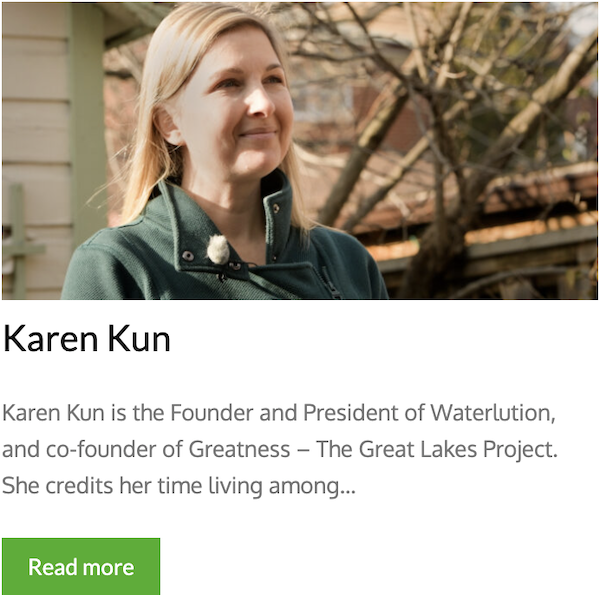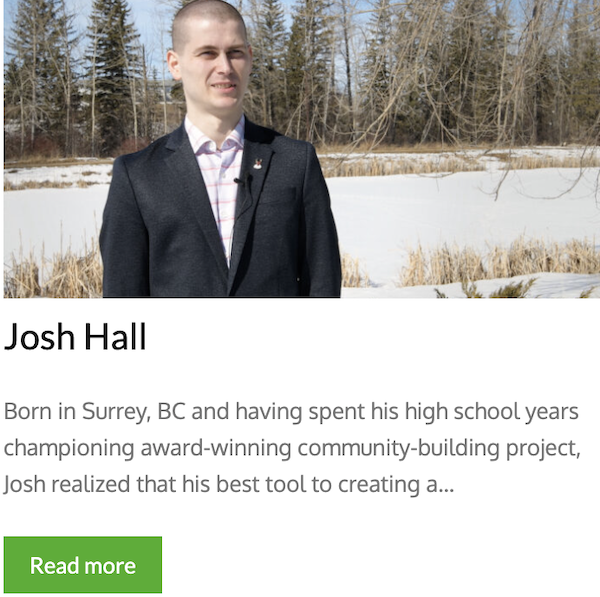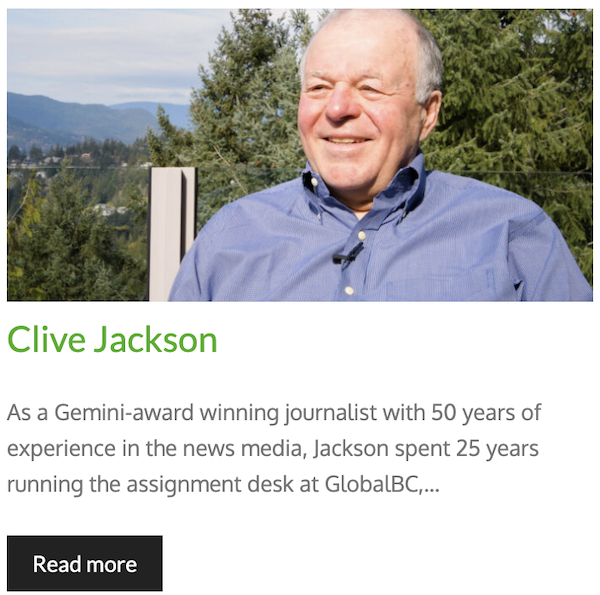Be Better
Chapter Eight
To shape and evolve and tell our story – our own ideas and our collective narrative – in many ways, it must begin with listening to the stories of our neighbours.
 “When we only understand the world for our own perspective, we’re only going to be surrounded by people that see the world in the same way as we do.” – Jerry McGrath | Art Innovator
“When we only understand the world for our own perspective, we’re only going to be surrounded by people that see the world in the same way as we do.” – Jerry McGrath | Art Innovator
“I think, at minimum, we owe it to ourselves and to our subjects to familiarize ourselves with their world.” – Garrick Ng | Storyteller & Entrepreneur
“I learned from everybody that I’ve ever listened to. And I don’t think a lot of people spend a lot of time listening. What are we all doing? We’re just pushing everything out! It’s like: ‘Look at me! Look at me! Look at this! I’m here. I’m here! I’m here!’ And nobody’s taking a minute to think: ‘Well, does anybody care? What should I be telling people?’ Everything you have to say is not important. I tell myself that all the time. And I’ve actually been in social situations and I’m like: ‘Oh, I gotta say this. It’s gonna be very important. And then I’m like, what’s the alternative if I don’t say it? Let’s see if I just be quiet. Will somebody else speak? Will somebody write something down? Will I learn something?’ And the answers to all of those are, yes! So, ultimately, it’s just shut up. Learn to shut up.” – Shawn MacDonell | Advertising & Hockey Scout
“If we’re always paying attention to people are experiencing a moment or a story or an opportunity, that allows us to bring out what’s best in them.” – Jerry McGrath | Art Innovator
“And it’s less to play this game of: ‘Oh, I know as much as you do, or I can keep up.’ It’s actually more so that you know what avenues, what doors to open.” – Garrick Ng | Storyteller & Entrepreneur
“It’s important to not just sit in a silo, but to also look at who might be a huge supporter of a pipeline (and work with them).” – TRACKS
“You’re able to have really good conversations and not just assume, based on one line of a conversation, or something else, that someone’s wrong or someone’s right.” – Kyle Empringham
“A lot of the time when people are in a conversation, they’re constantly thinking of what they need to say next.” – Kelly King | Indigenous Knowledge Advocate
“Just have conversations where you listen and try to understand people; where you’re actually listening to understand and not listening to respond.” – Dr. Aleem Bharwani | Cumming School of Medicine
“Listening is giving space for silence and giving space for someone to respond to what you’re saying without immediately jumping onto the next idea.” – Kelly King | Indigenous Knowledge Advocate
“By taking in what people tell me, I find when I come back to it, there are things we can do together. And it’s in doing those things together, you achieve value that otherwise couldn’t be achieved. And you bring out the best that any different group or individual has to offer. And that’s where diversity of thought becomes strength.” – Dr. Aleem Bharwani | Cumming School of Medicine
“And we’ve lost that and, so, while we’re more connected than we’ve ever been online, we’re more isolated from each other in real life. We need more connection to each other in real life.” – Salimah Ebrahim | Journalist & Entrepreneur
“You know, you live beside Jean and Jean goes to her car every day and goes to work and does whatever she does. And then she comes home and you wave and you’re shoveling driveways beside each other and that’s it. That’s all you really know. But everybody’s got a story. Everybody’s got something cool going on, whether they know it or not. There are thoughts every day and how do you get people to talk about their thoughts? We just don’t. We’re not encourage to do that very often, to really have a conversation.” – Shawn MacDonell | Advertising & Hockey Scout
Not only are we not encouraged to have a real conversation, we’ve increasing lost the understanding of what is a good conversation.
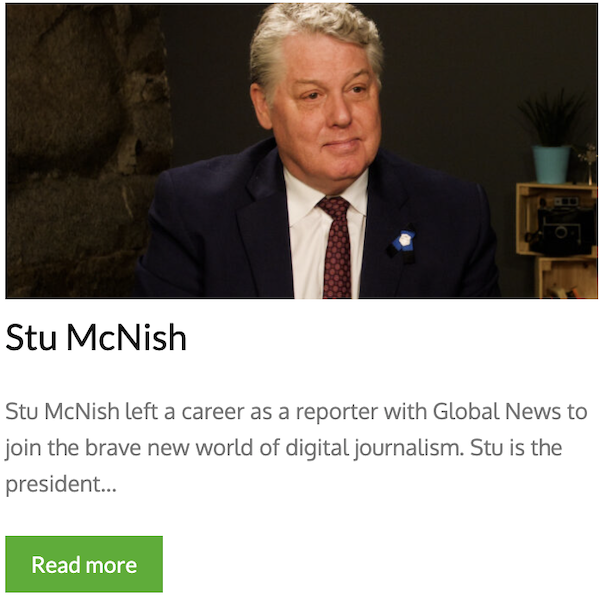 Why? We asked Conversations That Matter host Stu McNish.
Why? We asked Conversations That Matter host Stu McNish.
“People go, ‘well, it’s social media’s fault’, but I think it goes back further than that. You start to take a look at the way television, especially in North America, started to develop characters. They were people who made definitive, thought-ending statements. And you would see this: ‘That’s the way I want it to be!’ And the camera would then freeze on the star and then cut to the respondent going: ‘Oh, well, because you want it to be that way, well, then, of course, it has to be that way. You’re the dominant character.’ And I think that started to become attractive to people, this idea that I want to be that person that puts the final point on something.”
But as Stu explains, “real discourse doesn’t work that way. But we’re now starting to be conditioned that: ‘no, no, no, no, I can make points.’ And then it starts to reach an acrimonious level when there’s anonymity that gets brought in behind that. And, so, on social media, not everybody is who they purport to be – they feel like I can say anything. Well, when you’re face to face, you don’t do that quite the same.
“These things start to influence the way that we are listening to one another. ‘Well, I got this figured out’ or ‘I know that’ or ‘I got a group of people who were behind me because they’re all my friends on whatever social media outlet it is.’ And, so, then they feel emboldened to say whatever they want. But that’s not the way life works. Nothing is cut and dry.”
Journalist Stu McNish is right. But because we often speak to one another in black and white terms, we assume our decisions need to be black and white. And when we create black and white decisions, we cut ourselves off from differing perspectives and better ideas that can move us away from division and towards balance.
“You know, conversation gives you the opportunity to unlearn and re-examine and then consolidate a new perspective. So, to do that, you have to go into that conversation with a willingness to listen.”
Through his online TV show, Stu is championing the lost art of the conversation. And he wants to encourage more people to “go into a conversation believing that the other person knows something that you don’t know.
“And if you’re willing to listen to that, well then it can then change the way that you see the world. And, so, what I try to do always is, not assume that I have the answers or that I want to prove that I’m right. I want to say I have questions please help me understand.”
That, Stu says, is the key to a good conversation.
“I have a mindset that says there’s no way on earth that I know all the answers or have all the answers. Because I can’t. Nobody does.”
Well, that mindset and, Stu adds, also this realization about the questions we ask.
“You can ask a question that, depending on what the positioning of the question is, could be taken as being quite aggressive and challenging. When, in fact, it can be almost exactly the same question, but the intent is: ‘I don’t understand; I hear this, help me; enlighten me, show me another way.’
“And, so, to me, I think that that’s what’s at the heart of a good conversation: Am I willing to listen to you, especially when your perspective may be different than the way that I understand that the world operates?”
Which means the better answers can be uncovered through good conversations and good conversations happen when we ask the better questions and really listen to the answers.
“Everyone’s so focused on the answers, and the key to a good life is following your questions.”
 Journalist-turned-entrepreneur Salimah Ebrahim is right. But to ask the better question, Salimah believes “part of being able to ask good questions is to have a foundation of curiosity, but also a wide view of the world.”
Journalist-turned-entrepreneur Salimah Ebrahim is right. But to ask the better question, Salimah believes “part of being able to ask good questions is to have a foundation of curiosity, but also a wide view of the world.”
Now, a wide view of the world doesn’t mean understanding every facet of life. Rather it’s rooted in a willingness to speak with diverse people who, through conversation, can show us life’s complexities, underscoring that nothing is black-and-white, writer Ian Brown explains.
“The more people you talk to, the more points of view you at least have in your quiver, the more complicated it becomes. The more complicated something is, you get away from generalities. If you get away from generalities, you get away from this highly polarized, black and white, either/or point-of-view that seems to have not only marked, but I think spoiled a lot of discourse.”
But sitting down for conversations – especially with those we don’t know or don’t agree with – requires a certain vulnerability.
It’s not easy to ask questions, one-on-one. It requires a boldness – a braveness – that isn’t easy for all of us.
 That includes me and it also includes, surprisingly, professional question-asker, Ian Brown.
That includes me and it also includes, surprisingly, professional question-asker, Ian Brown.
“The thing I still hate after 40 years is when I have to pull my notebook out for the first time. I’m interviewing a bunch of people. I want to talk to people in the crowd. And I have to pull out my notebook and start writing things down. I think they’re all going: ‘Who’s that weirdo writing things down?’ But you know, the thing is, the weirdness feeling only lasts about 30 seconds and then somebody says something interesting, and you go: ‘Oh, go on about that!’
Ian adds, “I would tell people be brave. Don’t be afraid to ask questions, keep at it and remember that people actually love to talk about themselves.”
He’s right. Though it might be hard and even awkward at first, we need to overcome our fear of real, honest conversations and not shy away from our questions.
“I don’t like to ask people things. Because I’m definitely a quiet person. But if you don’t ask, you’re never going to know.” – Isabella O’Brien | Scientist
“So long as you’re focused and you’re asking questions that people want answered, people shouldn’t put themselves on pedestals and they shouldn’t be above answering questions. We’re all human beings.” – Clive Jackson | Journalist
“Don’t be afraid to ask. It’s asking questions that gets you further ahead down the road.” – Joe Urie | Indigenous Tourism Advocate
Is there an art to a good question? Waterlution founder Karen Kun tells us “The magic of life, to me, is being able to ask good questions. A good question does not have yes or no as an answer. That is a non-complex question.”
And rural journalist Josh Hall agrees, adding “it’s partly about leaving the question open ended.”
But also know this: Open-ended questions that seek complex answers don’t need to be complicated questions, producer Mark Miller points out.
“Whether it was science or politics, I knew I was always confident enough to ask dumb questions. And I really encourage people to ask what they might think are dumb questions, because the dumb questions often reveal the simplest truths.”
And no matter the conversation, we’re after the simple truths – the realities that get overlooked, the commonalities we forget. That’s where the answers live. That’s how we begin to better articulate a path forward.
So, as journalist Clive Jackson says, “think about what it is you want to know? What it is your friends want to know? What are the pertinent questions?”
Ask them and then go with where the answers take you, argues storyteller Garrick Ng.
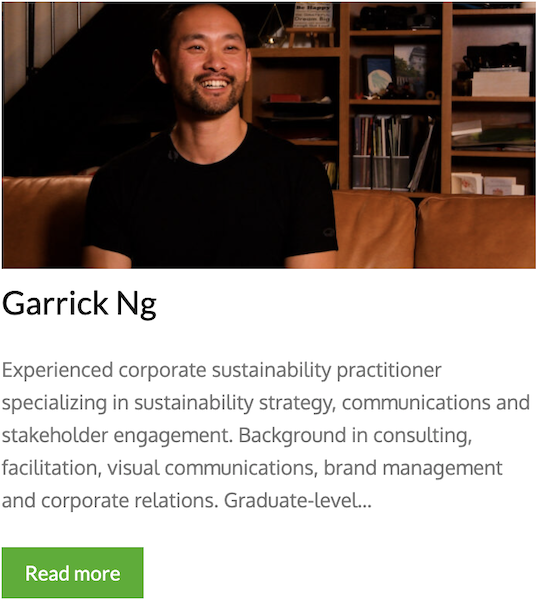 “There’s a difference between a good interviewer that’s just reading off three or four canned questions and the one who can follow a trail, sniff out where those breadcrumbs are going, sense where a door might open and go and open that door and follow up to find the next door and the next door. That’s where you can really reveal what someone knows. You can really enter into not just the factual conversations, but perhaps those emotional anecdotes that don’t come from necessarily those first three or four questions you might have in mind. If you can find that connection with someone, they’ll open up to you and then you just need to step back.”
“There’s a difference between a good interviewer that’s just reading off three or four canned questions and the one who can follow a trail, sniff out where those breadcrumbs are going, sense where a door might open and go and open that door and follow up to find the next door and the next door. That’s where you can really reveal what someone knows. You can really enter into not just the factual conversations, but perhaps those emotional anecdotes that don’t come from necessarily those first three or four questions you might have in mind. If you can find that connection with someone, they’ll open up to you and then you just need to step back.”
Because that’s not just the key to a good interview, a good conversation, good listening or good communication, it’s also the key to good consultation.
